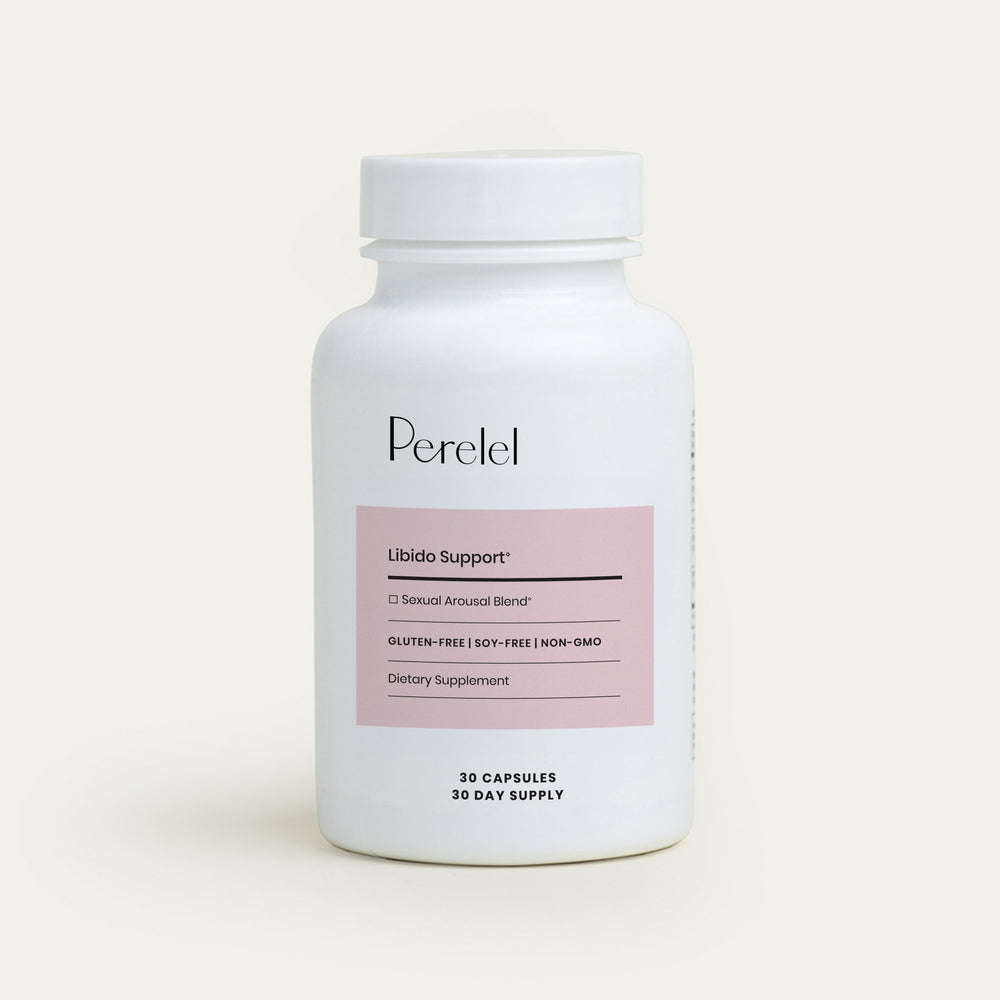As women, we may be somewhat used to thinking about our hormones—but that doesn't mean we're any good at making sense of them. That's because hormonal health is extremely complex and interconnected. There are at least 50 different hormones in the endocrine system, and they help regulate a variety of functions within the body, including metabolism, reproductive health, and sleep cycle.1 Which means that when your hormones are out of balance, it can impact your mood, energy level, and overall health.
If you’re in your 30s and 40s, it's important to know that a hormone imbalance may signal the start of perimenopause, the transitional period leading up to menopause. But, as is often the case with complex bodies, there’s quite a bit of overlap between the symptoms of perimenopause and other types of hormonal imbalance. How can you tell what’s actually causing your hormones to go haywire?
Here’s what you need to know.
How hormones impact your health
Our hormonal system, also called the endocrine system, is a network of glands and organs in the body that produce the hormones (the chemical messengers that communicate with your organs and tissues) that regulate all the cells in your body, controlling your body's metabolism, growth and many other functions. What's more, the gut, endocrine system, and immune system are in constant communication with each other through hormonal messengers, nerves, and microbial metabolites.
Hormone imbalances can be caused by stress, certain medications, underlying medical conditions, and lifestyle factors such as smoking, diet, and inconsistent sleep habits. Hormone levels also fluctuate naturally as we age—our bodies may produce less of a certain hormone or metabolize that hormone more slowly.2 Hormone fluctuations are especially common during puberty, pregnancy, postpartum and menopause.
Because hormones play a key role in so many bodily processes, even a small imbalance can lead to subtle symptoms like fatigue or mood swings that affect your sense of wellbeing. More significant imbalances may lead to medical conditions such as depression, anxiety, diabetes, polycystic ovary syndrome (PCOS), thyroid disease, and more.3 Hormone imbalances are also the most common cause of infertility in women.4
Symptoms of a hormone imbalance can vary depending on which specific hormones are out of whack. However, some of the most common symptoms are changes to your energy level, sleep schedule, mood, skin, or weight.
If you suspect you may have a hormone imbalance, your doctor can help you determine the exact cause, rule out any underlying conditions, and discuss treatment options.
Shop the Article:
Hormone changes during perimenopause
Perimenopause is a common cause of hormone imbalance. Around 75 percent of women experience symptoms of hormone imbalance during this transitional period.5
Perimenopause can start as early as your late 30s, and it may last up to 10 years.6 During this time, estrogen levels in the body gradually start to decline. Your menstrual cycle may become less regular, and your ovaries may release eggs less often, both of which can affect fertility. This dip in estrogen also throws off the balance between estrogen and progesterone in your body.
As your body adjusts to these hormone changes, you may experience symptoms such as:7
- Irregular periods or changes to your flow
- Hot flashes
- Vaginal dryness
- Frequent urination
- Sleep issues
- Mood changes
- Fatigue
Is it perimenopause? Pay attention to these symptoms
Certain symptoms—such as fatigue, mood swings, and sleep disruptions—are common among several different types of hormone imbalance. But a few symptoms in particular can help you pinpoint perimenopause as a likely cause for your hormone imbalance.
- Hot flashes
Hot flashes are a hallmark symptom of menopause, but around 75 percent of women actually start experiencing them during perimenopause.8 During a hot flash, you may feel a sudden heat radiating through your face, neck, and chest. Hot flashes can also happen at night, disrupting your sleep cycle—and a lack of sleep can worsen other perimenopause symptoms, such as anxiety.9
- Irregular periods
Irregular periods can have many different causes, including PCOS, endometriosis, stress, or excessive exercise.10 But you may be able to gauge whether perimenopause is to blame by paying attention to how consistent the changes to your cycle are. According to MayoClinic, if your cycle varies by more than seven days for a few months in a row, or you go 60 days between periods, you may be going through perimenopause.11
- Vaginal dryness
As estrogen levels drop during perimenopause, the walls of the vagina may become dry, thin, and inflamed. This can lead to itching, burning, frequent UTIs, and pain during sex.12
- Decreased sex drive
If your libido has been lagging, that’s a common sign of perimenopause. More than one-third of women in perimenopause have reported issues such as decreased arousal or difficulty reaching orgasm. These problems can be exacerbated by other perimenopause symptoms like fatigue and vaginal dryness and irritation.13
Of course, while any of these symptoms may help to clue you in to early perimenopause, the best course of action is always to schedule an appointment with your doctor to discuss your concerns.
Is it something else?
Some perimenopause symptoms can be signs of other conditions, including fibroids or miscarriage. If you have any of these, it’s a good idea to talk to your doctor:
-
Very heavy periods
-
Periods with blood clots
-
Periods lasting several days longer than usual
-
Periods that are closer together
-
Swelling or discomfort in your abdomen
-
Frequent spotting or bleeding after sex
The bottom line?
The process of taking note of your symptoms is good practice for the road ahead to keep you tuned into what’s going on in your body. That’s because perimenopause is a process. It doesn’t just happen overnight. It’s your body’s gradual journey toward menopause, and it can last for 10 years or more.
You can’t fight it, but there are ways to make it easier to live with, especially when you’re in touch with all of these shifts over time.
Next up: Learn more about high and low cortisol levels and foods that can help balance your hormones. Plus, if you're struggling with bad PMS symptoms, a hormone imbalance might be to blame.

theFolio in Your Inbox
Sign up to receive doctor-backed, stage-specific content in your inbox each week.
References:
- Cleveland Clinic: Hormones
- MedlinePlus: Aging changes in hormone production
- Cleveland Clinic: Hormones
- WebMD: Do You Have a Hormone Imbalance?
- University of Utah Health: Perimenopause
- Cleveland Clinic: Perimenopause
- Cleveland Clinic: Perimenopause
- The North American Menopause Society; Menopause FAQs: Hot Flashes
- Cleveland Clinic; Hot Flashes, Anxiety and Menopause: What’s the Connection?
- Cleveland Clinic: Irregular Periods
- Mayo Clinic: Perimenopause
- The American College of Obstetricians and Gynecologists: Experiencing Vaginal Dryness? Here's What You Need to Know
- Johns Hopkins Medicine: Sex After Menopause






















